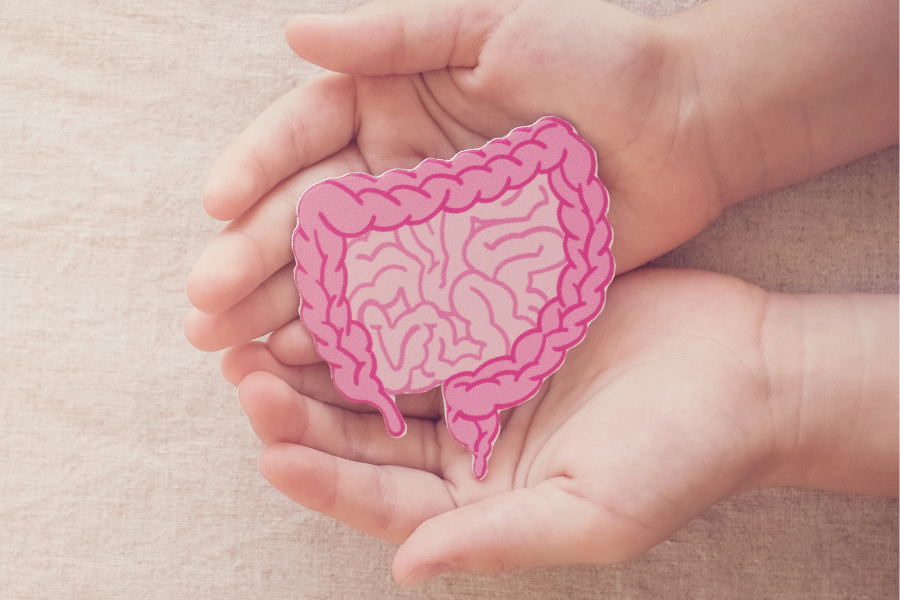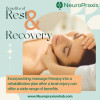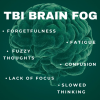Evidence has shown that our brain has a direct connection to our gut also known as our gastrointestinal (GI) tract, which works in both directions. Our gut is sensitive to our emotions. That is why when we are feel certain emotions such as anxiety, stress, or depression, we may experience a change in our stomach as well. These emotions can cause us to feel “butterflies” in our stomach, nausea, increase or decrease our appetite, or give us that “gut feeling” people speak of. In comparison, when we experience problems with our GI tract, it affects our brain, creating a variety of emotions. This bidirectional communication system, formally known as the gut-brain axis (GBA) is the connection between our central nervous system (CNS) which consists of our brain and spinal cord, and our enteric nervous system (ENS) which controls our gastrointestinal tract.
Our GBA is connected both physically through millions of nerves and biochemically through chemical substances in our bodies. Our gut consists of trillions of microbes (microbiota) that can be harmful or protective for the body (e.g. good and bad bacteria) and affect our brain’s health. Research has found that the microbes in our gut can our affect our emotions and behaviors. For example, a probiotic bacterium called Lactobacillus rhamnosus contains a neurotransmitter (chemical) called GABA that is responsible for easing our fear and anxiety and regulating our brain’s activity. Thus, certain amounts of GABA can influence our brain’s chemistry and how we feel (e.g., less or more anxious). Another example of how microbes influence our brain is through the production of short-chain fatty acids that can reduce our appetite. Our gut microbes also control what enters and leaves your body which affects our immune system and the inflammation in your body. A heightened immune system that is working hard for a longer period of time can lead to clinical depression and other brain-related disorders. Research suggests that altering bacteria in the gut through our diets may help to treat stress-related and certain neurological disorders. Strategies to improve your gut-brain axis are listed below.
| Strategies to improve the Gut-Brain Axis (GBA) |
|
References:
Carabotti, M., Scirocco, A., Maselli, M. A., & Severi, C. (2015). The gut-brain axis: interactions between enteric microbiota, central and enteric nervous systems. Annals of gastroenterology, 28(2), 203–209.
Healthline. (n.d.). The Gut-Brain Connection: How it Works and The Role of Nutrition. https://www.healthline.com/nutrition/gut-brain-connection
National Center for Complementary and Integrative Health. (n.d.) 4 Fast Facts about the Gut-Brain Connection. National Institute of Health. https://www.nccih.nih.gov/news/events/4-fast-facts-about-the-gutbrain-connection
Monda, V., Villano, I., Messina, A., Valenzano, A., Esposito, T., Moscatelli, F., Viggiano, A., Cibelli, G., Chieffi, S., Monda, M., & Messina, G. (2017). Exercise Modifies the Gut Microbiota with Positive Health Effects. Oxidative medicine and cellular longevity, 2017, 3831972. https://doi.org/10.1155/2017/3831972
Said, L. (2020). How to Improve the Gut-Brain Connection: 4 Ways to Keep Them Both Healthy. Goodpath. https://www.goodpath.com/learn/gut-brain-connection
Healthbeat. (n.d.). The gut-brain connection. Harvard Health Publishing. https://www.health.harvard.edu/diseases-and-conditions/the-gut-brain-connection



